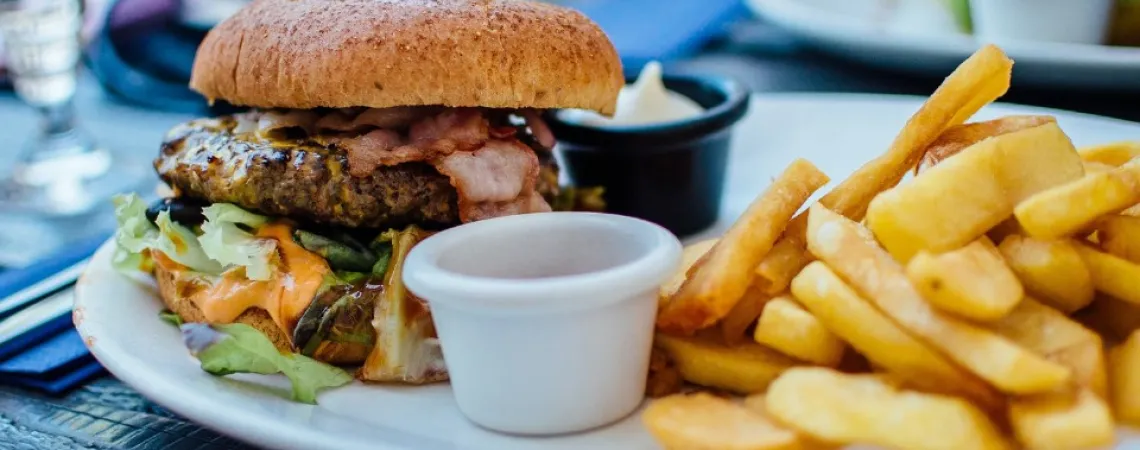
Does this situation sound familiar to you? You're not alone in thinking that all the efforts you put in during the week are undone by weekend indulgences. I'm often asked how to be more "reasonable" when the weekend arrives. My answer might surprise you.
1. Let Go of Food "Rules"
Food rules are self-imposed restrictions that dictate what to eat, when to eat, how to eat, and how much to eat. For example, "I don't drink wine from Monday to Thursday, only on weekends." These rules are often too restrictive and unrealistic. They become difficult to follow, and we end up breaking them. What happens then? Not only do we feel guilty for breaking a rule, but we also believe that our weekend is ruined, which leads to an all-or-nothing mentality.
2. Let Go of the All-or-Nothing Mentality
We often strive to eat well by following a strict meal plan, controlling our portions, and avoiding certain foods that we consider "fattening." Throughout the week, we worry about making a misstep. Then the weekend comes, and we're tired of eating the same things. Cravings become stronger, and out of "lack of willpower," we eventually give in. It becomes excessive. And what excess it is!
Rather than aiming for perfection, aim for progression. Embrace sustainable eating behaviours. For example, if you really crave pasta tonight, start with a small portion, take the time to savour each bite, and stop eating when you're no longer hungry. Or if you're craving a hamburger but not a fan of the accompanying fries, opt for a salad instead. Regardless of your food choices, make sure you feel good about the decision both during and after the meal. A more moderate and sustainable approach is much better than a "perfect" approach that you can only stick to for a few days.
3. Let Go of the Infamous "Cheat Day"
If you're not familiar with the term "cheat day," it refers to a day of the week where "anything goes" without limits. It's a way many people reward themselves for strictly following their diet for the previous 6 days. This often translates into excessive eating, where we finally allow ourselves to eat all the foods we've prohibited during the week. Once the "cheat day" is over, and knowing that tomorrow marks a return to reality, we start to feel anxiety (and maybe eat even more). We then go back into a restrictive cycle for 6 days... This relationship with food is not healthy. The solution is to let go of the idea of a "cheat day" and give ourselves permission to choose what we want to eat throughout the week, not just on weekends. This allows us to break the cycle of restriction that leads to excess and adopt a moderation approach every day of the week.
4. Stop Rationalizing Our Food Choices
The weekend seems to be a time prone to excessive eating. We find all kinds of reasons to justify our overconsumption. Whether it's traveling, family meals, being busy, or needing comfort. All excuses are valid.
Traveling, being busy, or attending family meals are not the causes of overeating. We tend to eat and drink too much in many situations. The reason we give for overeating is simply in line with what is happening at that moment. Rationalizing our eating behaviour in this way leads us to believe that we can't do anything about it and pushes us to repeat this behaviour.
It's time to ask ourselves the real questions: Why do I overeat in certain situations? Am I stressed, sad, or happy? Has food become a means of escape? Have I imposed too many restrictions during the week? Has food become my only pleasure or reward? Let's dare to ask ourselves these questions to find solutions.
In conclusion, it's important to free ourselves from restrictive food rules, the all-or-nothing mentality, the concept of a "cheat day," and the rationalization of our food choices. Embrace an approach of progression, moderation, and well-being throughout the week, including the weekend. Food should not be a source of guilt but rather a source of pleasure and satisfaction. Learn to listen to your body, respect your hunger and fullness cues, and find a balance that suits your lifestyle and overall well-being.
If you recognize yourself in some of the behaviors described above, a dietitian can help you regain balance and establish a healthy relationship with food.





